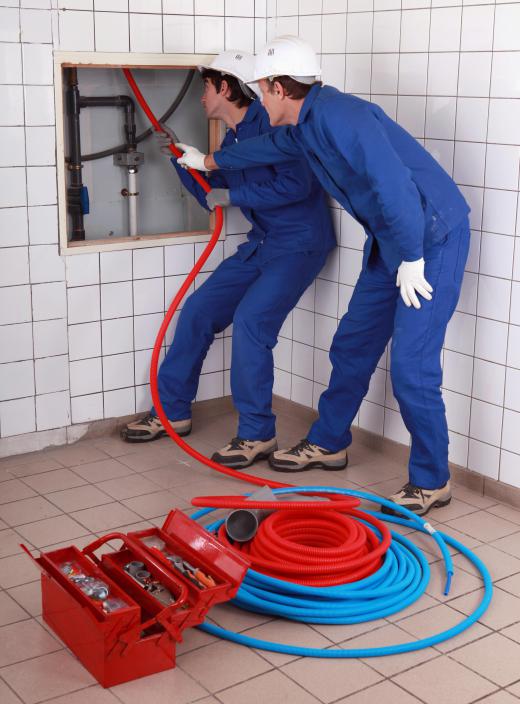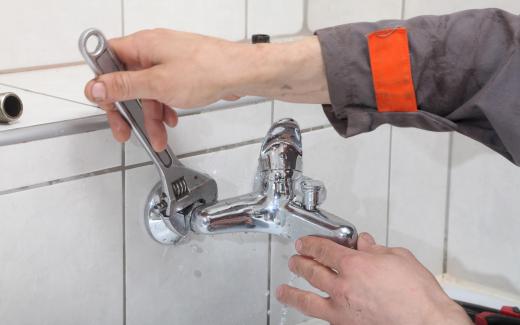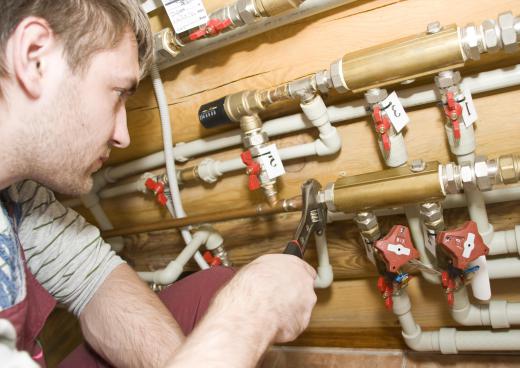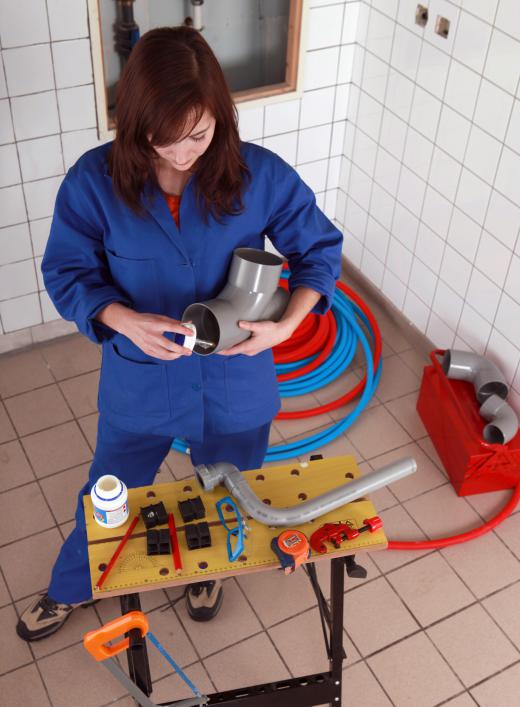A master plumber is a licensed professional who installs and repairs various commercial and residential plumbing systems. He or she might specialize in designing new systems, laying or fitting pipes, or performing repairs and maintenance on appliances and fixtures. Master plumbers are often self-employed, though many work for local governments, construction companies, and plumbing supply stores.
Plumbing experts are vital to the design and construction of municipal, commercial, and residential water systems. Engineers often work with a master plumber to create blueprints for new systems and determine the cost of implementing new systems. Plumbers involved in design often allocate all the necessary materials and lead an installation team. After the construction of a new system, a master plumber might perform a detailed inspection to ensure that it is working properly and conforms with local plumbing codes.

Homes and businesses require the skills of a master plumber to install and repair pipes, appliances, and fixtures. A plumber usually follows blueprints and building codes when installing various fixtures, such as sinks and bathtubs. When a pipe or appliance stops functioning properly, a plumber will inspect the system, diagnose the problem, and perform any necessary replacements or repairs.

Master plumbers are usually knowledgeable about many different aspects of plumbing, though some choose to specialize in one or more areas. Pipelayers, for example, install pipes of all sizes to be used for water and gas transport. They connect pipes between sewers or water mains to to different facilities. Master pipefitters usually specialize in working with pressurized water systems, such as those used in manufacturing firms and power plants.

To become a master plumber, a person must typically obtain an associate degree from a community college or complete a training program at a vocational school. Many plumbers begin their careers as apprentices, where they assist experienced plumbers for four to five years to learn the trade firsthand. After completion of an apprenticeship, a plumber can begin practicing independently and prepare for a state- or country-specific licensing exam. Written exams test a person's general plumbing knowledge as well as his or her understanding of local plumbing codes and regulations.

There is generally a strong demand for licensed master plumbers to implement new water systems and maintain existing ones. Urbanization and population growth result in the need for experienced professionals in both residential and industrial facilities. Technological advances in waste water treatment plants and municipal water systems present new opportunities for plumbers working in all specialties.
